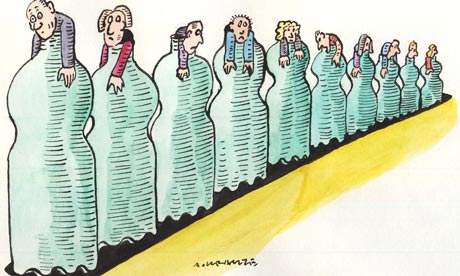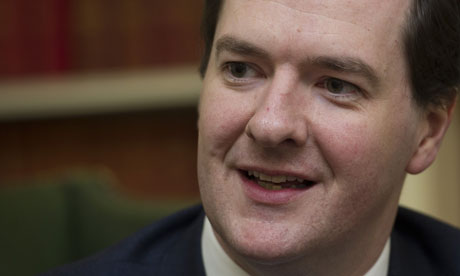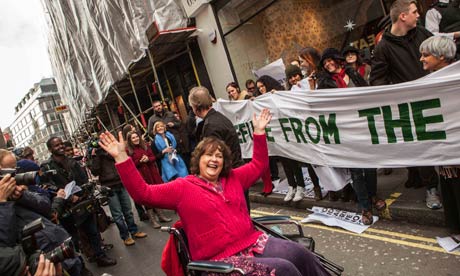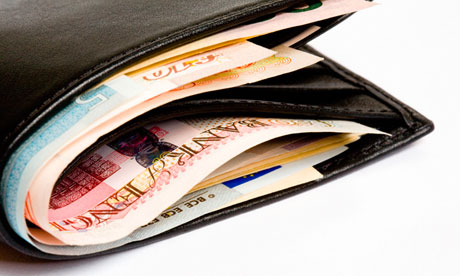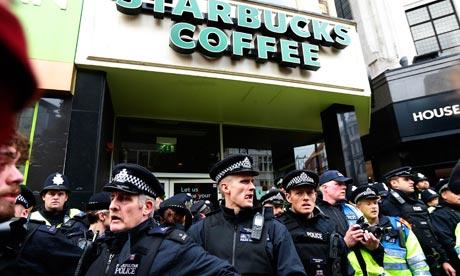'Don't fly @BritishAirways'?
For those with an axe to grind and a broadband account to exploit, here are a few ways to dot-complain on social media
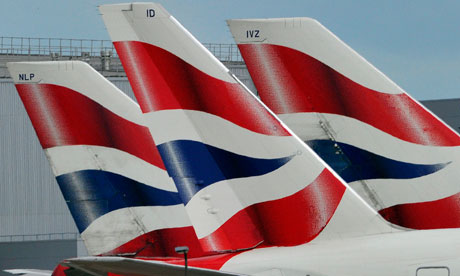
Hasan Syed, disgruntled with the way British Airways handled his father's lost luggage, paid $1,000 to promote a tweet that read "Don't fly @BritishAirways. Photograph: Toby Melville/Reuters
As the first law of digita ldynamics states, much of the energy expended within the internet relates to a) porn; b) cats; or c) complaining. The irate customer service tweet or Facebook update is familiar to us all. But while we may be used to people venting their frustrations online, Hasan Syed has just taken the power of anti-social networking to giddy new heights. Disgruntled with the way British Airways handled his father's lost luggage, Syed paid $1,000 (£640) to promote a tweet that read "Don't fly @BritishAirways. Their customer service is horrendous." This has now been seen by tens of thousands of people and promptly picked up by media outlets around the world.
The fine art of complaining has come a long way thanks to technology. Back in the pre-digital day you had to sit down and write a strongly-worded letter if you wanted to call out brands behaving badly. Those wishing to take a more direct approach could go wave a placard or, as a friend of mine once did, superglue your hands to a multinational's revolving doors. Nowadays, however, you can make your voice heard without risking appendages or wasting a stamp. So, for those with an axe to grind and a broadband account to exploit, here are a few ways to dot-complain in the modern age.
1. Bashtag
Last year Starbucks attracted widespread ire after it avoided paying corporation tax in the UK. So, in one attempt to make people feel all warm and fuzzy about its brand again, Starbucks invited the twitterati to display happy holiday messages on a big screen outside London's Natural History Museum in London by using the #spreadthecheer hashtag. Visitors to the Museum were promptly treated to a number of tweets along the lines of "Hey #Starbucks, PAY YOUR FUCKING TAX #spreadthecheer".
Starbucks isn't the first victim of what is termed "bashtagging." Some bright spark at McDonald's once came up with the great idea of letting people share their heart(burn)warming experiences with the brand via a #McDStories hashtag campaign. Voila, tweets like: "One time I walked into McDonalds and I could smell Type 2 diabetes floating in the air and I threw up. #McDStories."
2. Game Google
Google isn't just a search engine, it's a reputation engine. Like it or not, in the eyes of many, you are what you are on Google. And, for several years, former Republican presidential hopeful Rick Santorum found that what he was on Google was a "frothy mix of lube and fecal matter that is sometimes the byproduct of anal sex." This, by the way, wasn't down to a series of questionable decisions by the OED, but the result of a carefully orchestrated campaign by columnist Dan Savage. After Santorum ludicrously compared homosexuality to bestiality in a media interview, Savage gamed Google's search algorithm so that the first result for Santorum that came up linked to a what the New Yorker described as the "unprintable definition" Savage had created to protest Santorum's homophobia.
3. Use your Wifi network name as a targeted billboard
If you live in an area full of upwardly pretentious types you may have noticed a trend of creative Wifi network naming. Instead of settling for LINKSYS53z, for example, a 21st century quipster might call their network PrettyFlyForaWifi. However, as well as using it as a vehicle for unoriginal puns, some people are harnessing their network names to passively-aggressively complain to their neighbours. There is one person in my building whose network is called YOURMUSICSUCKS, for example. I severely curtailed my moments of guilty One Direction pleasure after that appeared.
4. But, wait, the luggage?
While some casual bashtagging or Google-bombing may be cathartic, sometimes catharsis is the only payoff. However, it looks like Syed's $1,000 BA-bashing may have resulted in more than just a warm flush of vengeance. As well as providing fleeting fame, it also seems to have delivered his luggage. Early this morning Syed tweeted "I got what I wanted. I win." Revenge may be a dish best served cold but sometimes, it seems, a little digital degradation can make for a satisfying hors d'œuvre.


